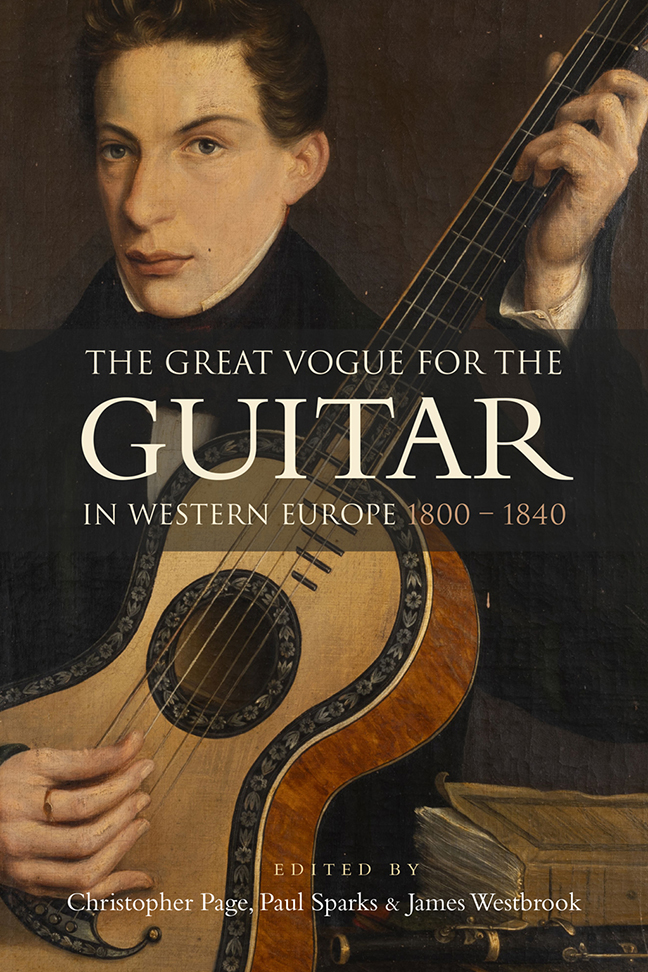Book contents
- Frontmatter
- Dedication
- Contents
- List of Illustrations
- Music examples
- The editors and the contributors
- Foreword
- Acknowledgements
- List of Abbreviations
- Introduction: The Great Vogue for the guitar
- I Contexts
- II The repertoire and its composers
- Appendix: A note on string-making
- Glossary of guitar terms
- Select Bibliography
- Index
16 - Giulio Regondi (1822/23–1872) and Catharina Pratten, née Pelzer (1824–1895)
Published online by Cambridge University Press: 10 January 2024
- Frontmatter
- Dedication
- Contents
- List of Illustrations
- Music examples
- The editors and the contributors
- Foreword
- Acknowledgements
- List of Abbreviations
- Introduction: The Great Vogue for the guitar
- I Contexts
- II The repertoire and its composers
- Appendix: A note on string-making
- Glossary of guitar terms
- Select Bibliography
- Index
Summary
When enthusiasm for the guitar in England was at its peak, two young guitarists arrived in London as child prodigies. Catharina Pelzer, who became known as Madame Sidney Pratten after her marriage in 1854, had moved to London from the Rhineland with her family by 1829. Giulio Regondi arrived soon afterwards, in 1831, having already caused a sensation in Paris. Their careers developed in different ways as the Great Vogue for the guitar receded.
The early years
Until recently, most of the detailed information about Regondi's early childhood derived from the account of a certain Madame Fauche, published just after the musician's death in 1872. However, a fuller picture can be presented by combining that account with new research by Romolo Calandruccio. Seemingly estranged from his birth family in infancy, the young child was adopted and taught the guitar by a Mr Regondi, who forced him to observe what nowadays seems like a harsh regime, practising alone for five hours a day while they lived together in Lyon. His progress on the instrument was astonishing, as attested by his first concert appearance there on 24 April 1828:
A budding little virtuoso made his debut at this concert, he was advertised on the poster as a 6-year-old amateur … The young artist played two pieces on the guitar with a talent that portends a great musician; we admired the dexterity of his little fingers and the precision he put into his playing. This child, endowed with all the graces of his age, enchanted his audience; he sat very seriously in an armchair placed on a table, the audience did not seem to intimidate him in any way. We were told that he was the adopted son of Mr Regondi, guitar teacher, who, having found this innocent creature abandoned under the vault of the Grand-Collège, welcomed him and dedicated to him all the most affectionate care of a father.
Several further concerts were given in Lyon during the next two years; the enthusiastic reviews report that Regondi senior ‘is said to follow in the footsteps of Sor and [C]arulli’. They also note that the child's repertoire included several works by the latter: a concerto and a Grande marche d’Aline.
- Type
- Chapter
- Information
- The Great Vogue for the Guitar in Western Europe1800-1840, pp. 251 - 268Publisher: Boydell & BrewerPrint publication year: 2023



